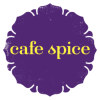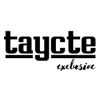As more consumers turn to the convenience of e-commerce to deliver alcohol during the coronavirus outbreak, the recent surge could be indicative of a broader shift that could buoy the largely untapped segment for beer, spirits and wine long after the virus has dissipated.
With consumers spending more time at home sipping drinks or holding virtual happy hours and get-togethers with friends, food and beverage purchases have soared — and e-commerce sales of alcohol has been far and away one of the biggest beneficiaries.
"When shelter-in-place began, we were uncertain of whether or not this would be a short-lived trend, or long-term change," Lindsey Andrews, CEO of Minibar, told Food Dive in an email. "What the growth numbers in April have shown us is that online alcohol delivery is here to stay. COVID-19 has shifted consumer behavior permanently."

Alcohol e-commerce retail sales have more than doubled from the week ended March 7 through April 18 compared to the same period a year ago, according to Nielsen. Spirits have grown the fastest, while wine continues to be the largest category, commanding almost 70% of online alcohol retail sales.
Andrews said while growth won't "realistically ... stay at this level," the awareness for alcohol online that has permeated the mainstream media and broader culture overall during the outbreak should spur further increases in sales.
Slow to adapt
Until now, alcohol delivery has lagged behind grocery delivery, and there is hope that the habits ingrained during the current pandemic will become permanent once the outbreak has abated. The coronavirus also has forced both large retailers and mom-and-pop shops to find new ways of doing business and embrace an online marketplace faster than they otherwise would have.
Drizly CEO Cory Rellas told The Wall Street Journal he expects the pandemic to accelerate online sales to as much as 8% of all alcohol bought from retailers, up from around 2% today.
"Alcohol consumption as a whole is looked at very differently now. Those people who have adopted to e-commerce have realized it's much easier, and these companies have paved the way to make it much easier to facilitate e-commerce orders. The pipes have been laid and they're not going to lie dormant."

Reid Greenberg
Executive vice president of digital and e-commerce, Kantar
Reid Greenberg, executive vice president of digital and e-commerce at Kantar, said alcohol sales for online alcohol delivery companies such as Drizly and Minibar that focus exclusively on this category have risen "triple digits" during the coronavirus outbreak, with similar increases posted at e-commerce sites Instacart and Postmates.
"Alcohol consumption as a whole is looked at very differently now," Greenberg said. "Those people who have adopted to e-commerce have realized it's much easier, and these companies have paved the way to make it much easier to facilitate e-commerce orders. The pipes have been laid and they're not going to lie dormant."
The shift, at least for now, could show how much value shoppers place in convenience. U.S. consumers are still willing to treat themselves with alcohol during shelter-in-place, according to Nielsen. Nearly 75% agree they expect to pay more for a delivered spirit than in a retail store.
Greenberg estimated across all e-commerce channels, including alcohol, about 30% of new customers that try the service for the first time during the coronavirus will remain long-term users.
Convincing the consumer
For now, growth remains robust. Instacart, the grocery delivery company, said the number of orders containing alcohol grew more than 75% during March. At Minibar, the on-demand liquor service said since March 11, overall sales have shot up 160%, with an increase in average order size by 22%.
Minibar, whose customer base is 90% made up of smaller liquor stores, has posted record sales during the period due in large part to a nearly 600% increase in people placing orders on its app or website. It also has experienced a seven-times increase in customers, mostly small or family-owned businesses, requesting to join its delivery platform.

Similar success has been replicated at competitor Drizly. Founded in 2012, Drizly reported during the week of April 26th that sales were up 392% over baseline, or what the company would have expected to normally see in this time period. Much of this growth comes from an influx of new customers, which now account for 27% of orders compared to a usual rate of 15%.
While Drizly, which uses its software to connect retailers or liquor stores with consumers, was growing even before the epidemic, the recent outbreak "certainly has accelerated that" pace of growth, Liz Paquette, head of consumer insights at Drizly, told Food Dive.
She said a major hurdle for faster growth in e-commerce delivery of alcohol had been convincing consumers that purchasing alcohol online was something they could do legally. As of late March, 31 states allow wine and beer to be purchased and sent directly to a consumer's home. Drizly and Minibar, which usually delivers alcohol to consumers in under an hour, have asked shoppers to give them two hours or more in some cases as they digest the surge in demand, a request people have been willing to accept.
"Given that this is a service that people are seeking out during this time and referring to their friends, I think the landscape is going to look much different moving forward, both from a consumer perspective because of that awareness level and the trial that's happening now for folks," Paquette said.
With consumers more reluctant to visit stores or their nearby local liquor shop for booze amid the outbreak, alcohol delivery becomes an increasingly more enticing option. Paquette noted its company's social media mentions are up 800% as more people mention the service to each other.
"None of us could have prepared for this," she said. "People are just seeking this out right now."
The e-commerce company said leads from retailers interested in working with the startup to deliver their alcohol have increased 300% since the coronavirus began. Retailers, especially neighborhood liquor stores, value the service as a way to offset lost sales for shuttered locations during the coronavirus, or as another channel to sell their alcohol.
While Drizly currently doesn't disclose sales or total customers, it serves "a few million people" in 180 markets in the U.S. and Canada each year. Minibar offers same-day delivery to 50 cities across the U.S. and has more than 500 retail customers.
While the flood of new partners has slowed how quickly retailers get added to Drizly's platform, the company has devoted more resources to alleviate the backlog.
"Our team is working in overdrive to make sure these businesses don't get left behind as quickly as we can," Paquette said. "I won't lie to you. The first couple weeks of this happening it was like triage mode, right, making sure we could actually meet this demand working with our retail network to step up to the challenge."
'An uphill climb'
Nick Johnson, an equity analyst with Morningstar, was far less optimistic about the future of alcohol online. He said e-commerce is riddled with a slew of challenges that will make it harder for the segment to become the preferred way for consumers to purchase beer, wine and alcohol.
"I think it's going to be an uphill climb," he said.
For companies that prioritize alcohol, the products are cumbersome and sometimes fragile to deliver. Similar to other last-mile delivery companies, it's difficult for those in alcohol to amass the scale they need to compete profitably in a market or to offer the service to shoppers at a price point that makes it attractive for more people to use it, he said.

Even as more consumers use e-commerce for alcohol delivery, people, especially in urban areas, have plenty of choices in their neighborhoods to purchase alcohol. With this convenience, shoppers in a post-coronavirus world may be less willing to foot the delivery fee attached to each order or the markup attached to the products they purchase when they could simply venture out a few minutes from their homes, Johnson said.
In addition, with so much alcohol being consumed at bars, clubs, sporting events and other ventures, consumers may end up drinking more at home in the long run but these establishments will remain the preferred way for people to imbibe.
"I definitely think there is an opportunity there but I don't think it's going to be a dominant channel," Johnson said. "I just don't see much of an appetite for it."
Analysts said while a few alcohol delivery companies could conceivably stay independent, the ones that successfully entrench themselves in the space and become profitable after the pandemic could be attractive acquisition targets. Others could find themselves better off folded into a bigger company where the economics are more favorable.
E-commerce doesn't need "another intermediary just to focus on alcohol delivery to the home," Johnson said.
Andrews from Minibar said while there could be consolidation, it's not a priority for her company in the near term.
"We believe there is a huge opportunity to build a massive business and that is what we are focused on," she said.
"I definitely think there is an opportunity there but I don't think it's going to be a dominant channel. I just don't see much of an appetite for it."

Nick Johnson
Equity analyst, Morningstar
For his part, Greenberg noted those businesses that emerge from the coronavirus outbreak will further increase their value and have the opportunity to raise money, or attract a suitor, at a higher valuation. Companies can increase their value going forward by working closely with state and federal governments that oversee alcohol sales, strengthening their balance sheet and developing a closer relationship with the shoppers by improving features such as product recommendations.
"I remain very bullish on the long-term impact that COVID-19 will have on e-commerce ordering in grocery, more specifically in alcohol," Greenberg said. "But the economics behind it are tricky. It's best to have it combined with other products in the shopping cart, not just alcohol by itself, because it's very expensive to pick, pack and ship a bottle of wine."























